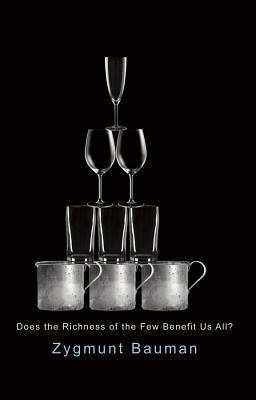What do you think?
Rate this book


100 pages, Hardcover
First published February 26, 2013
The plight described is the ultimate consequence of substituting competition and rivalry – the mode of being derived from belief in the greed-guided enrichment of the few as the royal road to the well-being of all – for the human, all-too-human longing for cohabitation resting on friendly cooperation, mutuality, sharing, reciprocated trust, recognition and respect.I just wish he'd expended a bit more energy arguing the point.

